Understanding E-commerce
e-commerce business commonly known as electronic commerce is a business transaction that occurs over the Internet. It has greatly impacted the retail industry it has allowed businesses to link with customers all over the world.
In this guide, we’ll cover:
- How to Start an E-commerce Business
- Benefits of E-commerce
- Challenges and Considerations
Why start an e-commerce business in 2024?
How much does it cost to start an e-commerce business?
How to Start an E-commerce Business in 2024
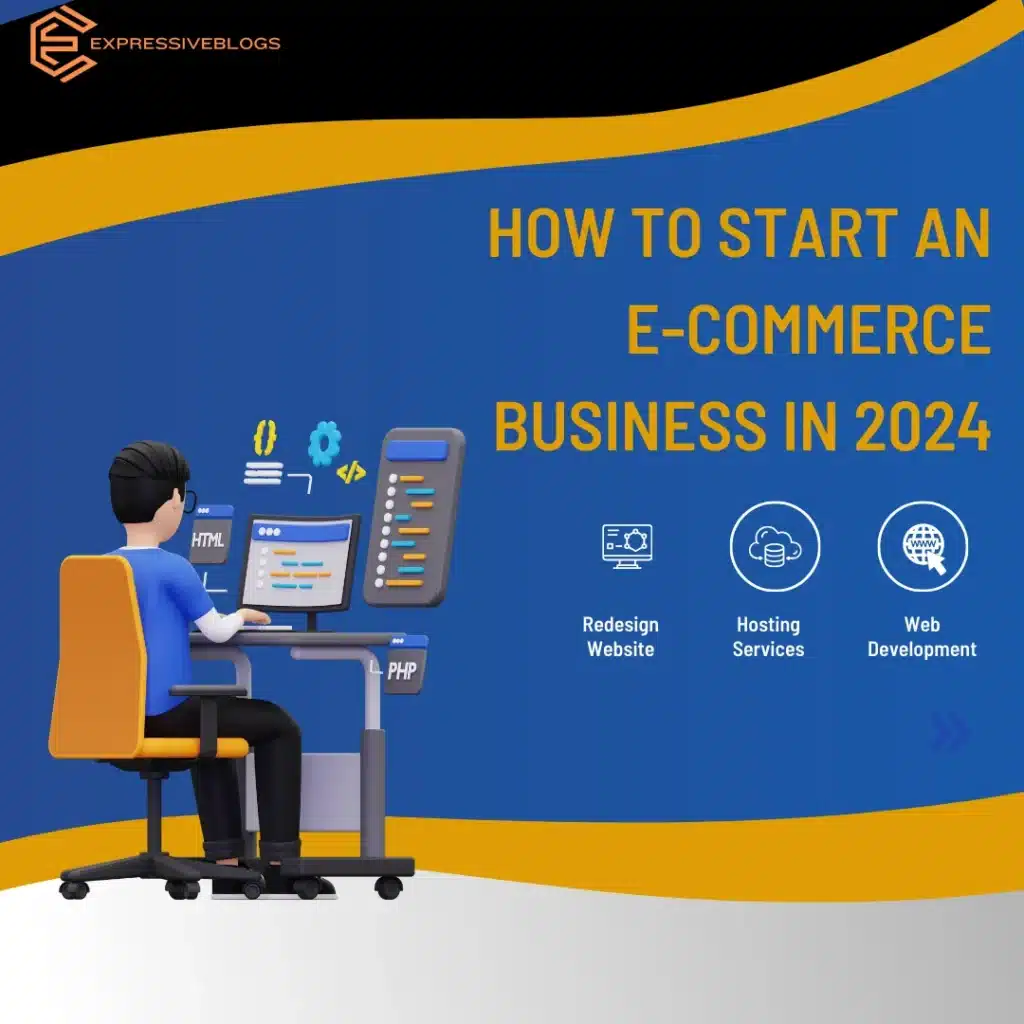
Starting an e-commerce business in 2023 can be an exciting venture. Here’s a basic roadmap:
- Identify a Niche: Choose the particular object of sale – choose a product or choose a service. Take into account your interest, specialization, and need of the market.
- Conduct Market Research: Try to understand your competition and developments in the market and among your target audience to find the levers.
- Create a Business Plan: Describe your business objectives, clients, intended marketing approach, probability of revenue and loss, and business strategies and procedures.
- Choose a Platform: Choose an e-commerce host such as Shopify, WooCommerce, Magento, or BigCommerce to design your online store.
- Product Sourcing: Decide how you will obtain the products to sell. These are, for instance, manufacturing your products, drop shipping, or wholesale.
- Develop Your Brand: Design a logo, format a website, and ensure that all communications to the external environment emit a similar feel.
- Optimize for SEO: Make your website SEO-friendly to receive more organic traffic.
- Build an Online Presence: Apply the approach of social media communication, content marketing, and e-mail communication with clients.
- Payment and Shipping: Establish online payment facilities and fast and safe means of delivery.
- Customer Service: Ensure the customers’ satisfaction is a priority during the provision of services to ensure they develop a trustworthy relationship with the business.
Benefits of E-commerce business
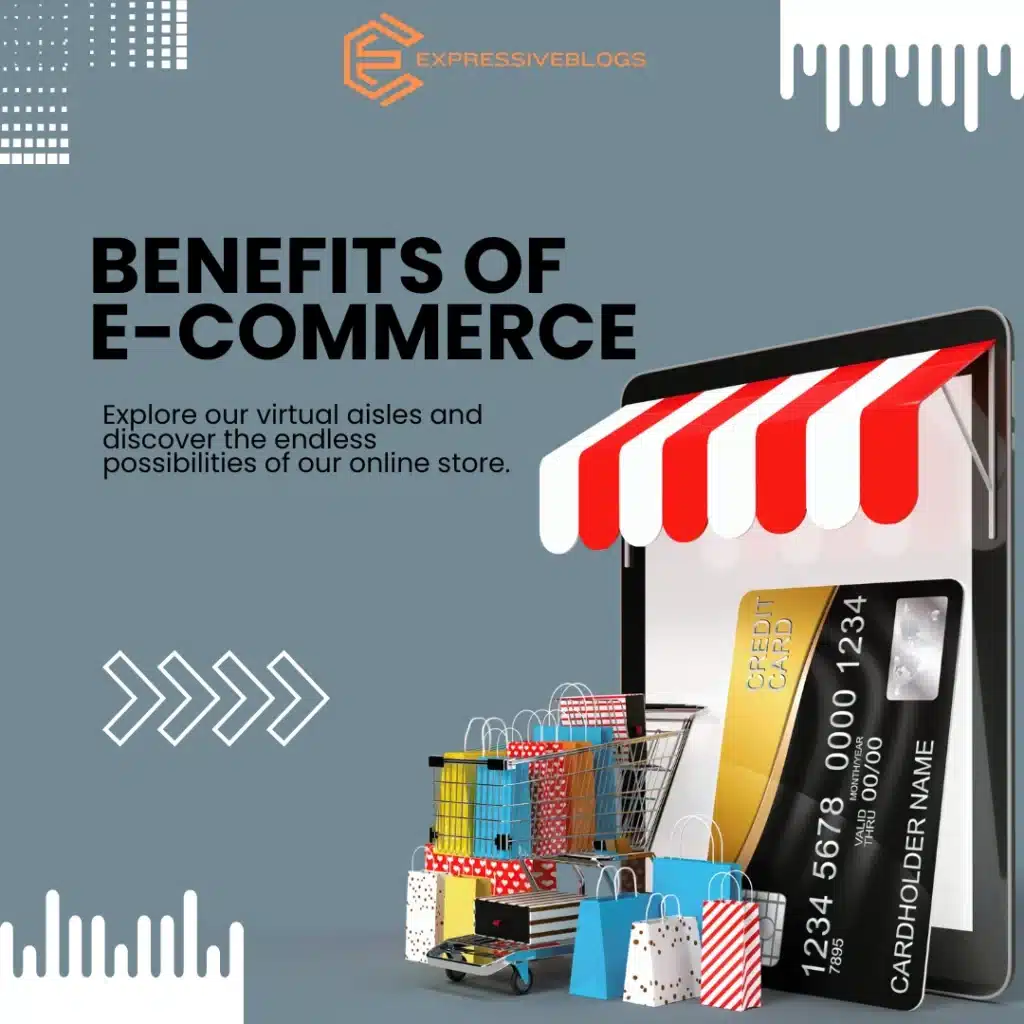
- Global Reach: Create a boundless selling environment for customers all over the world.
- Lower Overhead Costs: Usually, lower expenses for operation in comparison with the stores that are located in physical spaces.
- 24/7 Operations: your e-commerce store is open around the clock
- Data-Driven Insights: Collect profitable and important information about customers for further improvements of the business strategies.
- Customer Returns and Refunds: Create good return policies with the firm and manage returns properly.
- Marketing and Advertising: Spending money on efficient marketing means will help in gaining customers.
also read:Can You Really Make Money Online in Pakistan? 8 Shocking Methods Revealed in 2024
Challenges and Considerations in E-commerce Business
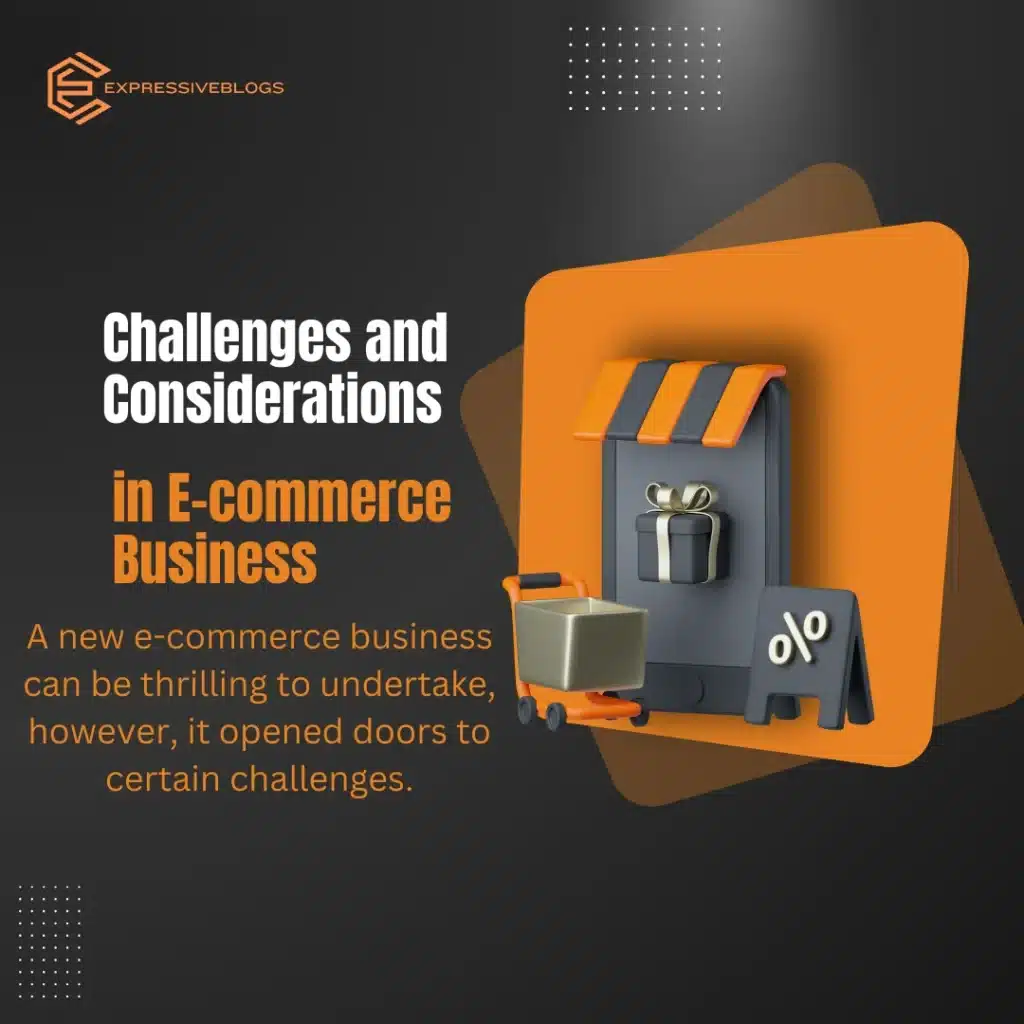
A new e-commerce business can be thrilling to undertake, however, it opened doors to certain challenges. Here are some key factors to consider: Here are some key factors to consider:
Challenges:
- Stiff Competition: E-commerce is a great market that is already populated by giant companies and a large number of newcomers.
- Customer Acquisition Costs: Finding new customers is costly since one has to invest large amounts of money to get the attention of the consumer.
- Supply Chain Management: Inventory, shipping and returning of goods can be cumbersome for any business but especially those venturing into the international market.
- Price Competition: The prices are usually sensitive and customers are always going through various outlets to compare the prices and hence, it is hard to make reasonable profits.
- Customer Expectations: The quality of products and services, their delivery time, and receptive customer service should be up to the customer’s expectations and beyond.
Considerations:
- Business Model: The selection of an ideal business model should be done with a lot of consideration with regard to your objectives, capital and targeted market (B2C, B2B, Dropshipping, Subscription).
- Target Market: Companies need to clearly identify their target market to address specific issues with products, selling strategies, and consumers’ interactions.
- Product Selection: Find a way to distinguish yourself from other similar businesses by coming up with something you have to sell that the other businesses do not have.
- Website Design and User Experience: Design a beautiful website that is easy to navigate and leads to the sale of goods.
- Payment and Shipping Options: Ensure you give a number of safe methods of payment and ensure that the delivery services are safe.
Why start an e-commerce business in 2024?
All in all, there are quite a few righteous grounds to start an e-commerce business in 2024 even though the given challenges remain rather acute. Here are some key factors to consider: 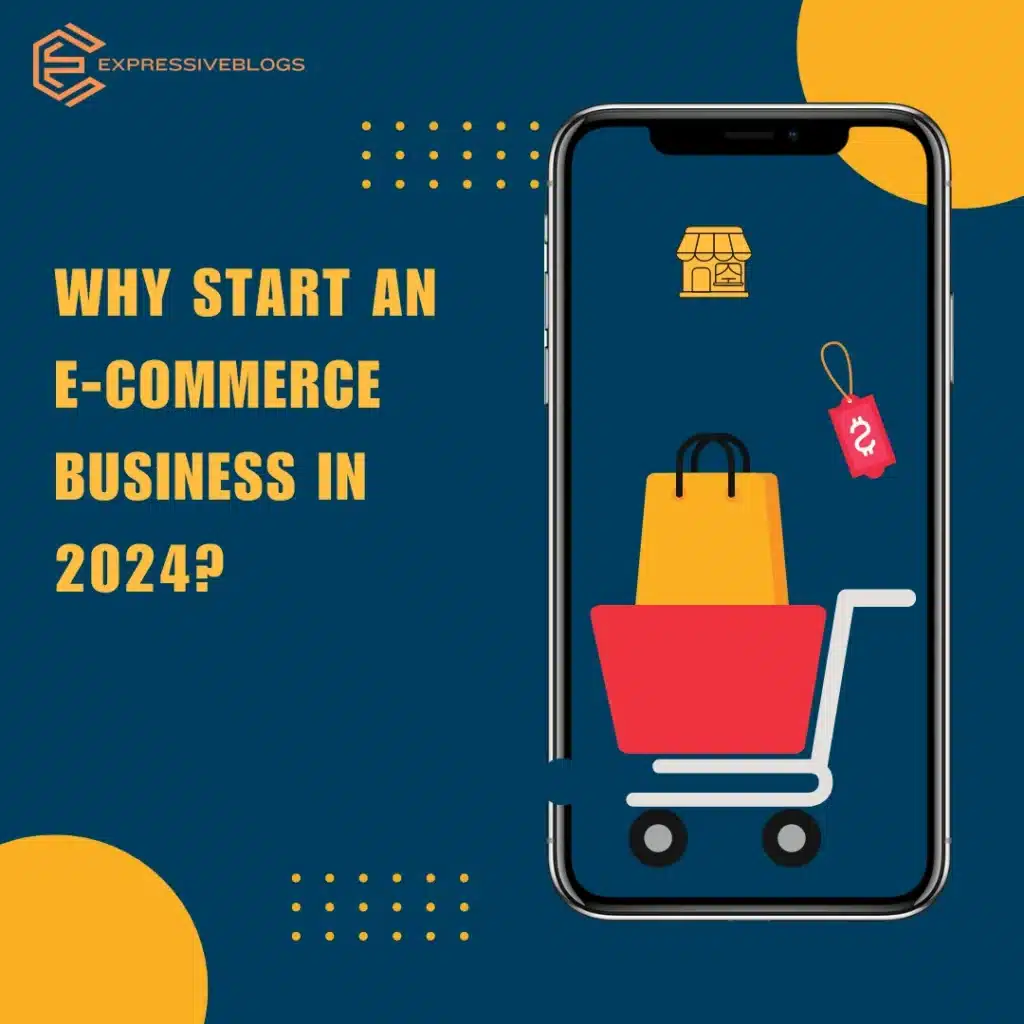 Here are some key factors to consider:
Here are some key factors to consider:
Continued E-commerce Growth:
It is expected that the e-commerce market will continue its present trend of growth in the future. Analyzing scholarly works, the global market of e-sales could reach the unbelievable figure of $6. Along with this, the global economic loss is estimated to be not less than 8 trillion by 2025. This means a great possibility of covering a big audience for your online store.
Evolving Consumer Behavior:
It is worth stating that the buying behaviour of consumers has changed for the better and they no longer prefer the traditional methods of shopping. The samples include convenience, availability of a larger variety of goods, and cheaper prices, among others that continue to pull customers to e-commerce platforms.
Technological Advancements:
The advancement of technology is popularizing the establishment of online stores like never before. There are more approaches for easy running of one’s e-commerce enterprise for instance user-friendly interfaces, effective marketing solutions and effective delivery solutions.
Global Reach:
E-commerce enables a company to work as per the geographical location of the customers for it has no restrictions. This leads to new business opportunities and exponentially increases your pool of prospective consumers.
How much does it cost to start an e-commerce business?
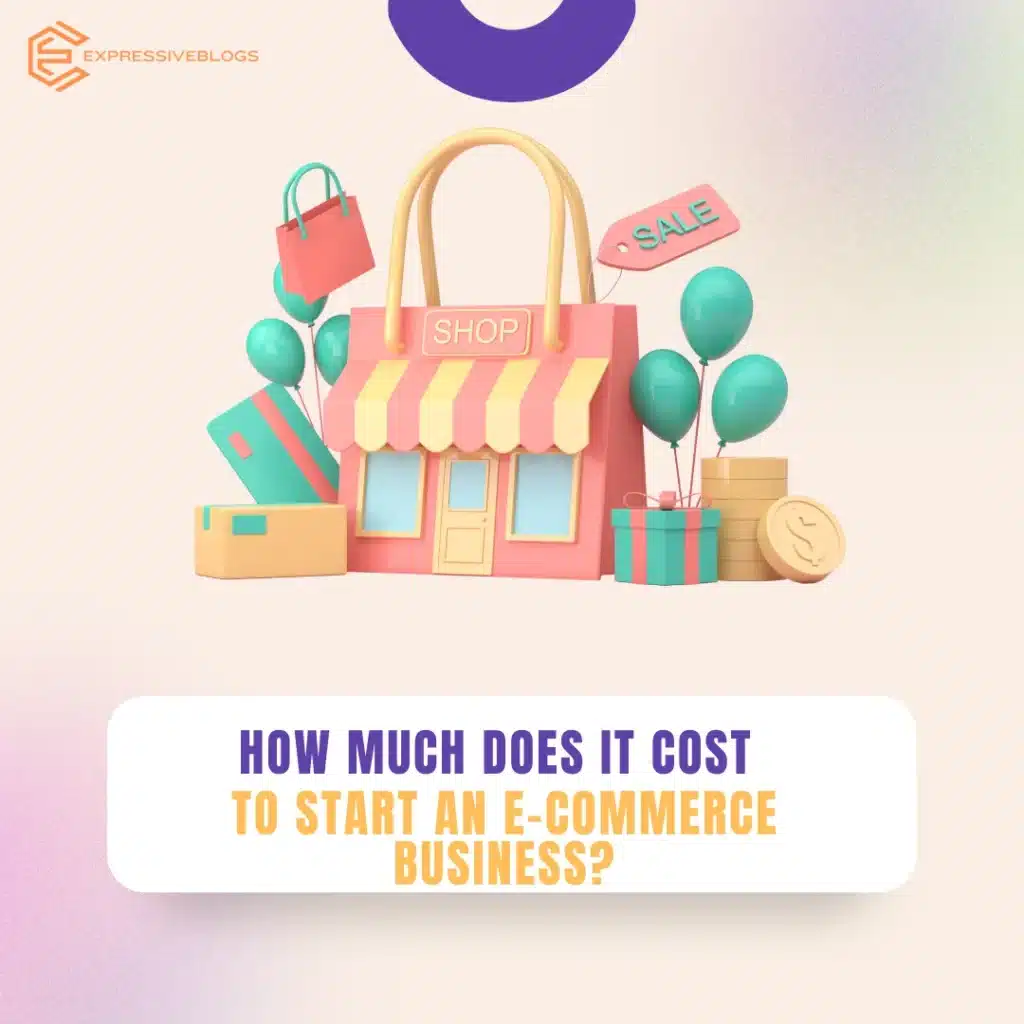
The cost of starting an e-commerce business can vary significantly depending on several factors, including:
Business Model: It is also noted that in most cases, dropshipping entails less initial stake in inventory than holding one’s stock.
Product Selection: Items such as packaging, storage, and other similar services will be influenced by the range and kind of products you sell.
Platform Choice: There are also costs of e-commerce platforms which include monthly subscriptions, per transaction, and possibly the costs of additional apps.
Marketing Strategy: While activities like SEO are purely organic, advertising is a paid-up exercise and hence will imply a lot of expenditure.
Here’s a breakdown of some key cost categories:
Website Development and Design: Basic website with a template: APIs amount ranged between $500 and $5,000.
Custom-designed website: $5,000-$20,000+
read:Exploring the Features and Advantages of Hostinger PK Hosting Services
E-commerce Platform Fees:
Monthly subscription fees: There are two options for payment, they are Free and Paid; The Free one offers limited and basic features while Paid vary from $20-$300+ depending on the platform and the features required.
Transaction fees: (ordinarily commission basis, which could be a percentage of any sale made).
Product Acquisition: Cost of goods (if not using the ‘drop-shipping’ technique).
Wholesale or manufacturing costs
Marketing and Advertising: Social media marketing expenses (can be zero or incurred) Pay-per-click advertising (for instance Google Adwords)
Shipping and Fulfillment: Packaging materials, Shipping costs
Future expenditures especially if the company outsources the formation of the fulfillment center.
Here’s a general range to consider:
Low-cost approach: Most strategically developed web-based ventures should fit into this range: $500-$1000 for the barest minimum and rather limited marketing endeavors.
Moderate approach: $12,479 – $39,800 (Comparable with the average costs of many up-and-coming businesses that conduct some marketing).
High-cost approach: This can go much higher depending on some cases such as the need for a large-scale advertising campaign or the need to develop special software for use in the business.
Comparison Table of all the e-commerce business websites
| Feature | Shopify | WooCommerce | Magento | BigCommerce | Squarespace |
| Ease of use | High | Medium | Low | Medium | High |
| Cost | Medium | Free (hosting costs) | High | Medium | Medium |
| Scalability | High | High | High | High | Medium |
| Customization | Medium | High | High | Medium | Medium |
| SEO | Good | Good | Good | Good | Good |
Conclusion
While the e-commerce market in 2024 offers dynamic and exciting prospects, it is not without obstacles. A highly competitive and ever-changing environment necessitates meticulous preparation, smart execution, and a dedication to continual development. However, with a well-defined business plan, attention to customer experience, and the capacity to perform, beginning your eCommerce firm in 2024 might be a successful business with enormous growth and success. The future of retail is clearly online, and this is the finest way to participate in that rising future.

